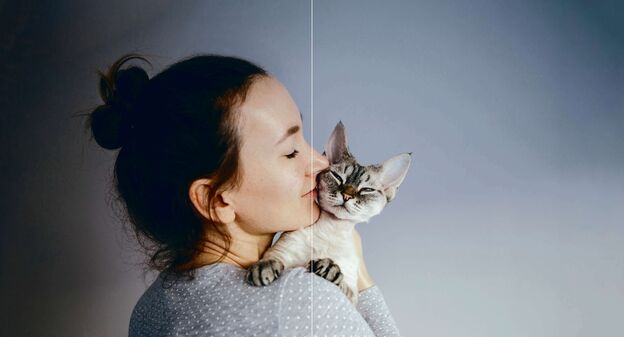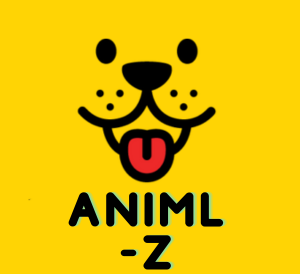
A “niche” market!
It’s a joke that everyone involved in animal health insurance has heard. The share of insured pets has never really taken off in France: it stagnates at around 7% for dogs and around 4% for cats, etc., despite the arrival of new players. “Between 20 and 30% of insurable animals are insurable today in France, if we put aside those already sick or medically treated,” however, asserts Karine Gangneux, Director of Equity Development. The Generali subsidiary specializes in risk bearing and the co-construction of white label damage offers, including animal health insurance. She works with recognized brokers, such as SantéVet and LSA Courtage, as well as with non-insurers.
Among the newcomers attracted by these equipment rates which bode well for possible good progress, we include a certain number of insurtechs: Kozoo, Lovys, Pety, etc. “It was a market where few companies were present. The arrival of several new actors were able to lead historic insurers to renew themselves,” analysis Asim Mohammad Maqboolco-founder of Pety, launching in 2022. Acheel arrived at the same time in this market and, in 2023, its co-founder and CEO Ralph Ruimy listed around 15,000 contracts in the portfolio. “It’s small compared to the number of animals in France, but it’s a profitable activity,” he notes.
However, despite the work carried out by the forty or so players who market dog-cat offers, including non-profit players such as MGEN or Pro BTP, market growth remains low. To remedy this, several avenues are being explored.
Develop distribution
A broker market par excellence, animal health insurance also attracts some insurers and direct distribution players. “Even if the equipment rate is progressing little overall, these offers are popular on comparison sites: the cost of lead on animal health is now approaching that on cars”, calculates Ralph Ruimy. “This is not insurance that is sold in agencies, he specifies. But even when subscribed online, it often requires more human intervention to take action than more common contracts, such as car contracts.
According to Caroline Bruzac, director responsible for individual customer insurance solutions at Generali France, “animal health insurance is a product that can be sold, where auto/MRH can be bought”. In the absence of an insurance obligation, the act of purchase must be instigated. “Our agents, as well as the sales advisors of our salaried network, were already largely distributing our previous product, she elaborates. They continue with Mon Animal Generali, our new offer since 2020. Animal health insurance is not a very complex product, but we make sure to present the guarantees as clearly as possible.”
The actors thought very early about the notion of the ecosystem of the animal world. At the end of the 2000s, a charter of good conduct for the veterinary profession was designed to facilitate collaboration between veterinary doctors and insurance companies. But this initiative was rejected by the Council of the Order in the early 2010s.
Today, SantéVet stands out by targeting veterinarians. The broker offers them, as well as their customers, numerous services (PayVet financing system, software solutions, online appointment scheduling software, etc.), which allows it to be particularly well established. “But we don’t want to make veterinarians insurance salesmen,” recalled in our columns its president, Hugues Salord, in 2023.
Adjust pricing
Even if inflation partly explains the renunciation of this type of non-obligatory product, the subject of prices remains decisive in understanding why this market is slow to take off. To anticipate their pet's health costs, many humans opt for self-insurance. “For the market to progress, prices and products must be constantly adjusted, underlines Karine Gangneux. It is thanks to this approach that we have achieved positive results in this market for a little over five years, after fifteen years of losses. The margin on these products still remains very low.”
Asim Mohammad Maqbool describes Pety's pricing positioning as “intermediate” : “We defend parametric pricing, depending on the breed of the animal, which saves us from having to make significant price increases”, he explains. On this point, in connection with the rise of direct in this market, the co-founder of Pety notes that a “good price, it's also a good reading of the contract guarantees. However, on comparators, the price is essential, while the guarantees, like the deductibles, are less clear.
When they were launched, certain new players promised very low prices, but they are now forced to significantly increase them. “Simply actuarially speaking, this is no longer possible. It is around this subject that these recent insurers and brokers must professionalize themselves,” judge Karine Gangneux.
Same observation for Myriam Saada, director of the offer for Solly Azar, a French pioneer in the market since 1986, who emphasizes having limited its price increases to 3% this year. “One of the ways to limit these increases is to fight against fraudshe testifies .We are currently integrating an artificial intelligence tool for researching document fraud in order to further accentuate our actions.”
At Acheel, accident and illness guarantees can be taken out separately, which allows the neoinsurer to display prices from €2 per month. But the average premium per year is around €146 for a cat, and a little over €200 for a dog. At Generali, the three available formulas always combine the two, as is the case with the majority of market players.
“The French are used to seeing their own health expenses covered by Social Security and complementary insurers, underlines Caroline Bruzac. Animal insurance is a more active expense, and one that we need to work on to remove the psychological obstacles.”
Refine communication
Another point is almost unanimous among market players: animal health insurance has not, until now, been a product well presented to the general public. “We feel more and more a desire for assurance. The behavior of owners is changing, particularly since the pandemic. We are on the path to catching up,” wants to believe Asim Mohammad Maqbool. As highlighted by a study published at the end of 2023 by Generali and the SPA, of which the company is a partner, 92% of French people consider their pet to be a full member of the household. “However, this proclaimed attachment rarely materializes on the animal health market – and this has been the case since its creation,” regret Célya MeunierDirector of Offers and Innovation at ECA Assurances. “Before being made aware of the subject, many animal owners are not aware of the costs of veterinary consultations: the bill rises faster than they think,” she notes. This is why players in the sector are thinking about the services they could offer, particularly in terms of prevention.
Finally, they explore new types of relationships with shelters, associations or pet stores. Without making them insurance distributors, these partners are vectors of communication who have the ear of potential customers. “From the moment the owners take out the insurance, they have little doubt about their interest thereafter, concludes Célya Meunier. The challenge is therefore to convince those who are still reluctant. »
%%OFFEXT:1%%




